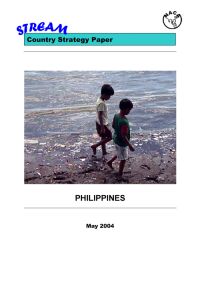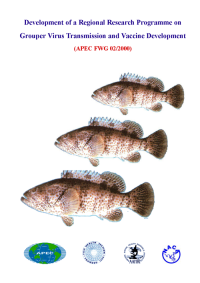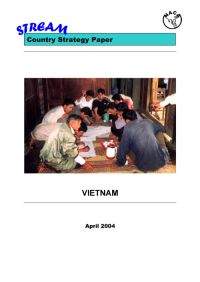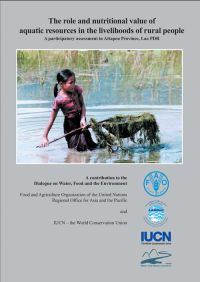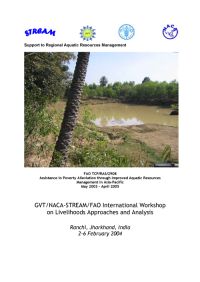In 2002, the Philippines Government signed a Partnership Agreement with the NACA-STREAM Initiative. The initial focal point for STREAM work is Western Visayas, including the Sapian Bay and Banate Bay areas where BFAR Region 6, the STREAM country host, has on-going engagements, and also areas within Regions 6 and 7 where marine ornamentals collection and trading occur. The key disadvantaged groups for whom aquatic resources are a source of livelihood are the primary stakeholders for the initiative.
These are the proceedings of a workshop, funded by the APEC Fisheries Working Group Project 02/2000. The project developed a framework with nine major research components: Health and production at hatcheries, regional collaborative disease resource centers, regional disease monitoring and surveillance, improving regional diagnostic capabilities, responsible trans-boundary movement, farm health management, vaccines and vaccination, funding mechanisms and establishment of an ad-hoc working group.
Although Vietnam has long been listed among the poorest countries of the world, it has recently made large strides in reducing poverty and improving food security. However, the dramatic gains in poverty reduction in Vietnam still remain quite fragile. There is growing evidence to indicate that dependence on aquatic resources is correlated to poverty, and that aquatic resources constitute an important component of wider livelihoods strategies (largely from the Mekong Delta, Central Coast and the Northern Mountains).
This assessment is intended to address the concern that the ecological and livelihood functions and values of rice fields and adjoining wetlands are not fully appreciated in development planning. A participatory assessment was conducted in Attapeu Province, Lao PDR to determine the role of aquatic resources in the nutritional status of people engaged in rural livelihoods and to determine any opportunities, constraints or threats that may exist concerning the management of aquatic resources and future development in the province.
The purpose of the workshop was to develop and document mechanisms for training in livelihoods approaches and analysis, and to build national capacity to conduct livelihoods analysis. The workshop in Ranchi was a joint India-Nepal event. A central element of the workshop was a visit to the Jabarrah community, where participants learnt about the community’s livelihoods. In addition to gaining information about the Jabarrah community itself, participants also had important insights into how best to conduct livelihoods analyses.
